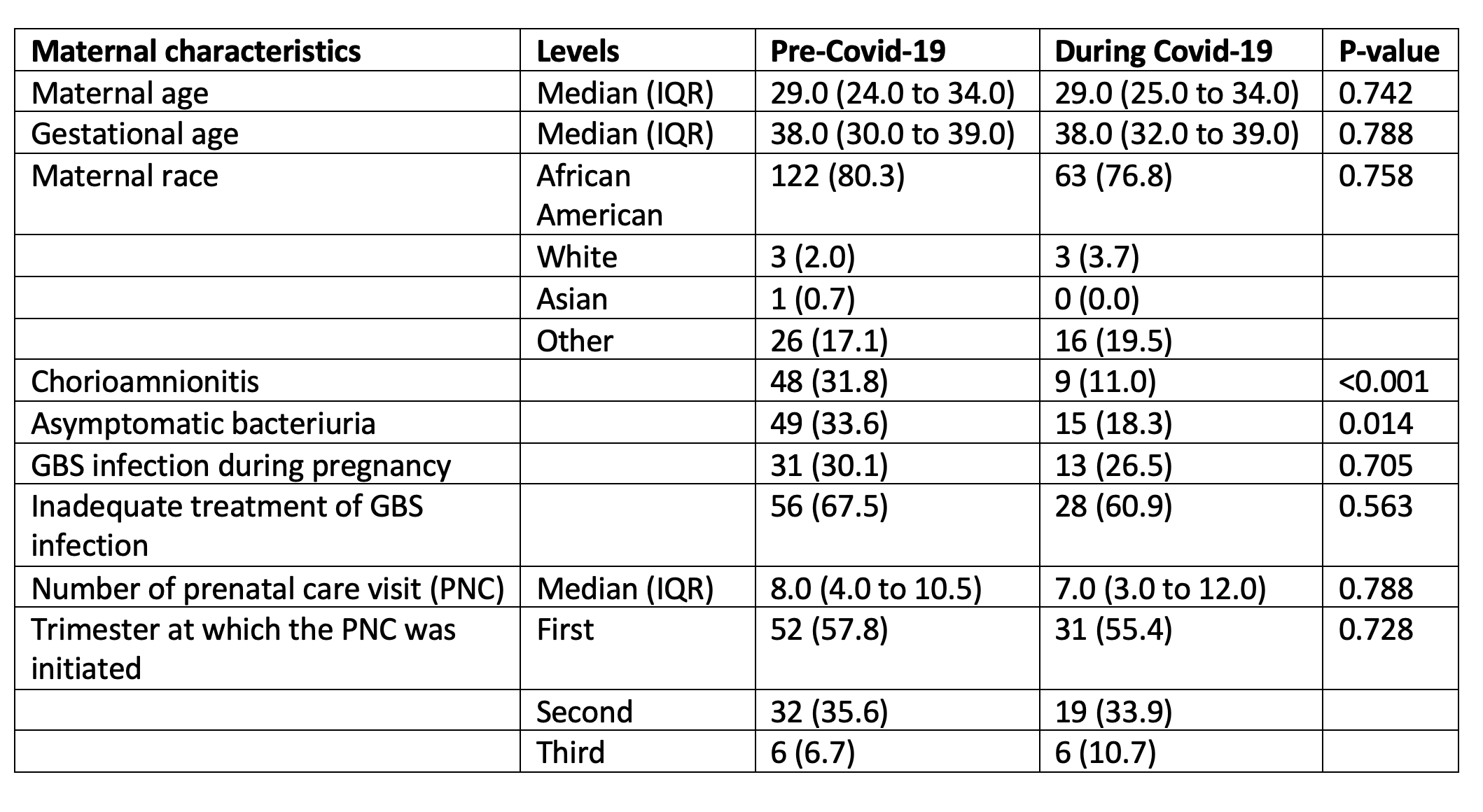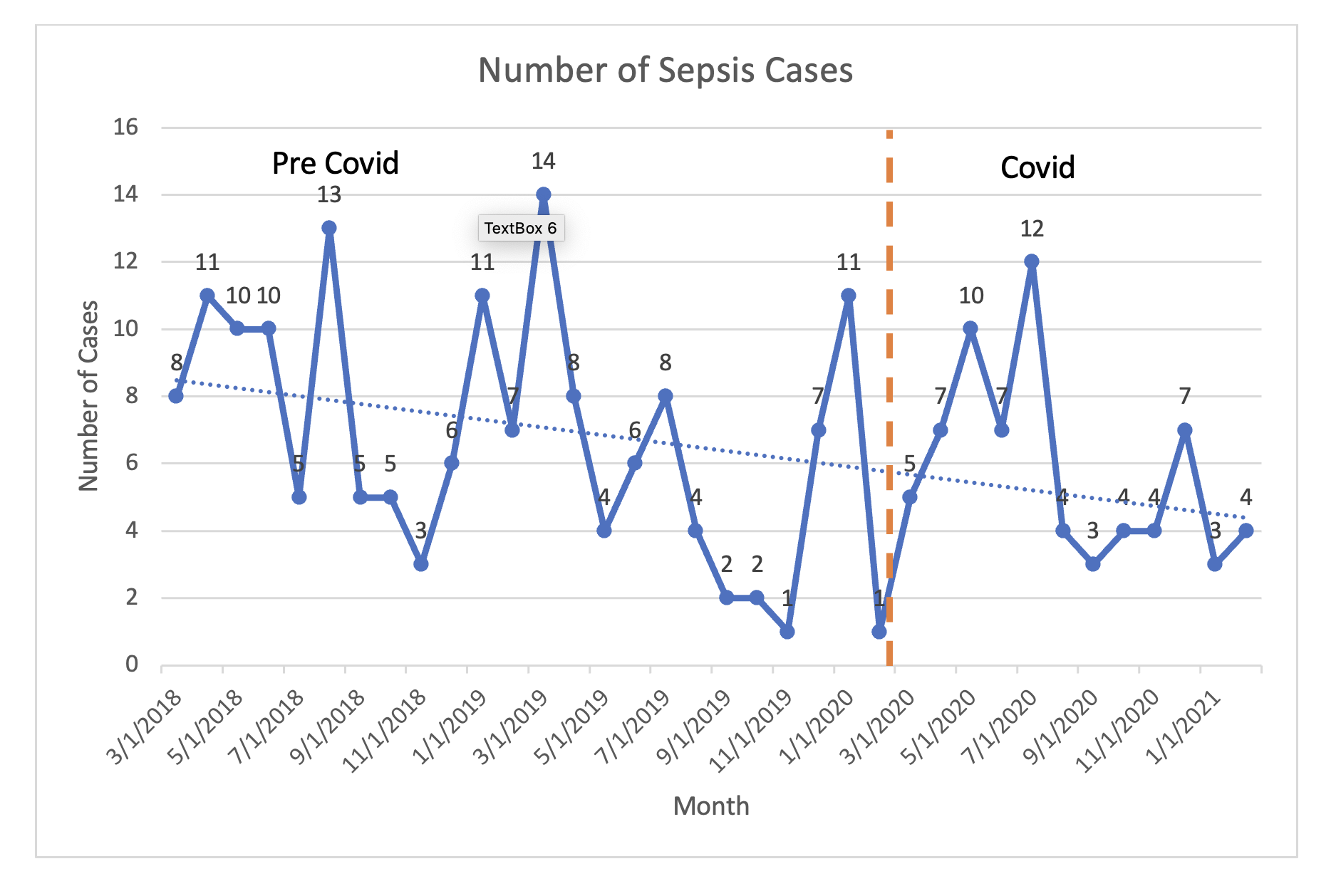Neonatal Infectious Diseases/Immunology
Neonatal Infectious Diseases/Immunology 5
452 - Neonatal Sepsis Before and During the Covid-19 Pandemic
Monday, May 1, 2023
9:30 AM - 11:30 AM ET
Poster Number: 452
Publication Number: 452.431
Publication Number: 452.431
Utsav Timalsina, One Brooklyn Health, Brookdale Hospital Medical Center, Brooklyn, NY, United States; Kristina Ericksen, Brookdale University Medical Center, Brooklyn, NY, United States; Abhinav Thakral, One Brooklyn Health System - -, Brooklyn, NY, United States; Kusum Viswanathan, OBH Brookdale Hospital Medical Center, Brooklyn, NY, United States; Arnikka Rubia, Brookdale University Hospital Medical Center, Brooklyn, NY, United States; Anushree Murugan, Brookdale Hospital Medical Center, Brooklyn, NY, United States; Prasansa Basnet, Nobel medical college and teaching hospital, Brooklyn, NY, United States; Fernanda E. Kupferman,, One Brooklyn Health @ Brookdale Hospital Medical Center, Brooklyn, NY, United States

Utsav Timalsina, MD (he/him/his)
Resident
One Brooklyn Health, Brookdale Hospital Medical Center
Brooklyn, New York, United States
Presenting Author(s)
Background:
Neonatal sepsis is a major cause of morbidity and mortality among neonates. During the Covid 19 pandemic, preventive measures, shift of work force and medical supplies were adopted hospital wide to respond to the health crises. These measures might have impacted the incidence of neonatal sepsis, early onset sepsis, or late onset sepsis.
Objective: The objective of this study is to assess if there was a difference in the incidence of neonatal sepsis before and during the Covid-19 pandemic.
Design/Methods:
A retrospective study was conducted to compare the incidence of neonatal sepsis before (March 2018- Feb 2020) and during the Covid-19 pandemic (March 2020-Feb 2021). Babies were diagnosed with neonatal sepsis if the microorganism was isolated from blood culture, urine culture or CSF culture OR if they received the antibiotics for suspected sepsis for at least five days and either had the WBC < 4 x 10 9 cells/L, CRP >1.5 mg/dL or immature to total neutrophil ratio (IT) >0.2 if no microorganism was isolated from the culture. The data were manually abstracted from the hospital’s electronic medical records that included all live born neonates in our institution at Brooklyn, NY, from March 2018 to Feb 2021. The difference in the incidence of neonatal sepsis before and during the pandemic were analyzed using Chi-squared test.
Results:
A total of 2402 neonates were born between March 2018 and February 2021 (1686 before and 716 during the pandemic). Of them, 235 babies (10%) were diagnosed with neonatal sepsis; 153 (9%) before and 82 (11.5 %) during the pandemic. Maternal characteristics of the population are described in table 1. Despite the reduction in two known risk factors such as maternal chorioamnionitis (p= < 0.001) and asymptomatic bacteriuria (p=0.014) during the Covid-19 pandemic, there was no significant difference in the incidence of neonatal sepsis, early onset sepsis, and late onset sepsis before and during the pandemic (See table2).
Conclusion(s):
There was no difference in the incidence of neonatal sepsis, early onset sepsis, and late onset sepsis before and during the Covid-19 pandemic. Our study results indicate that the preventive measures adopted from the neonatal and maternal unit during the pandemic might not have impacted the incidence of neonatal sepsis, early onset sepsis, and late onset sepsis during the pandemic.



